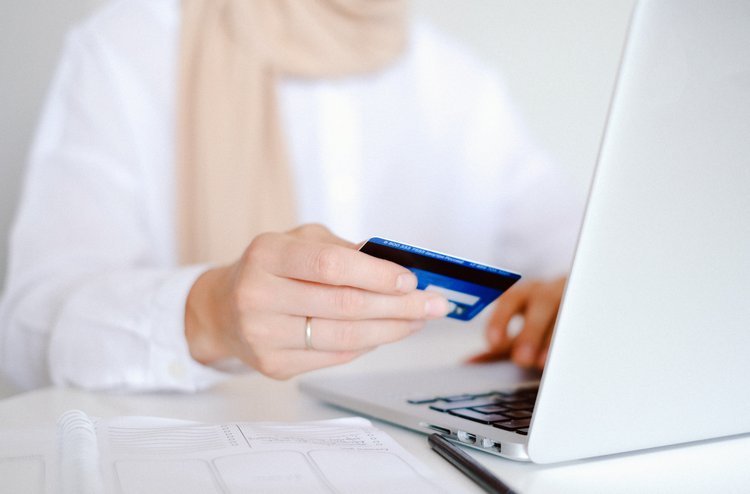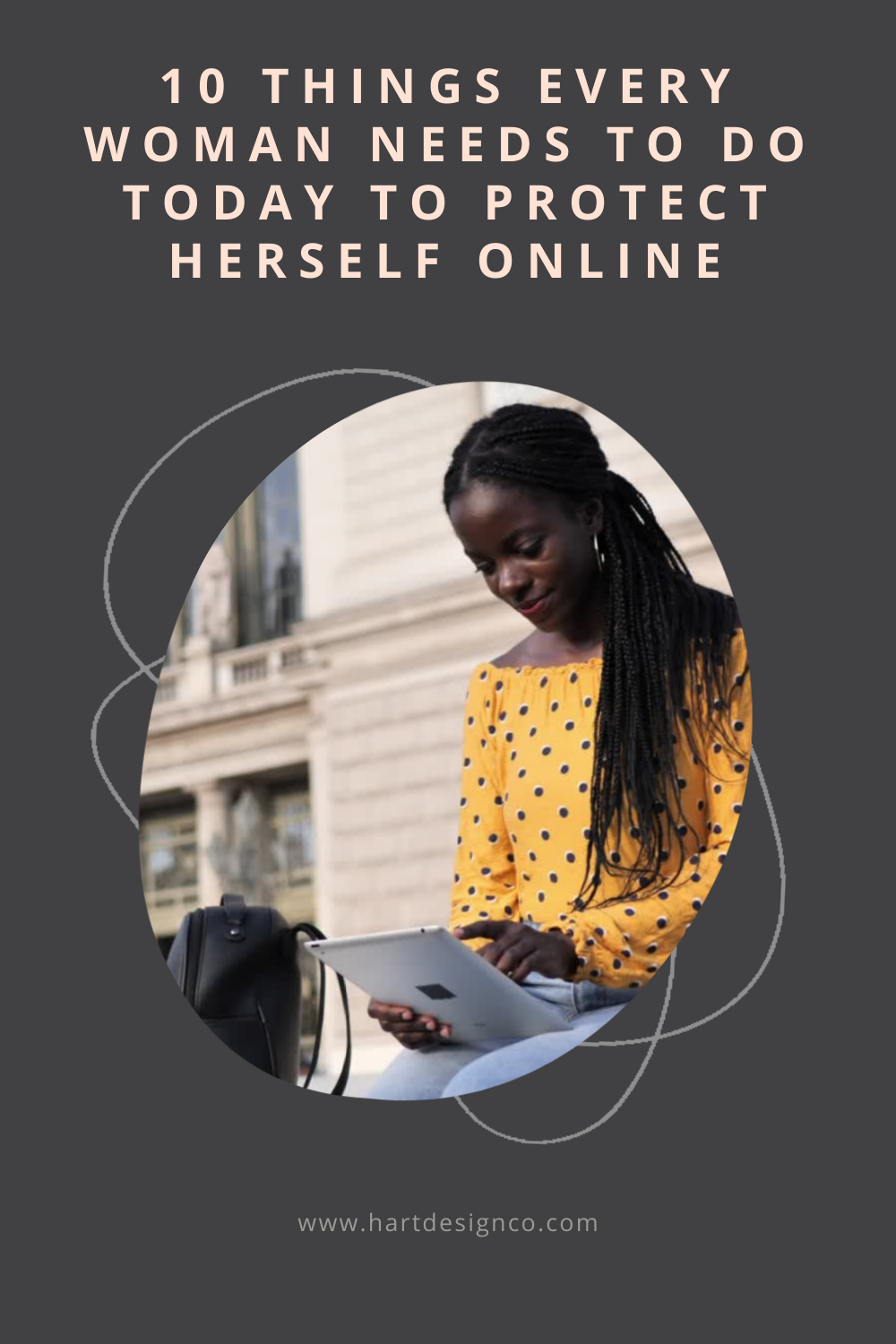
Online Security: 10 Things Every Woman Needs to Do Today to Protect Herself
Share

A few months ago, I had (what looked like) my bank reach out via text inquiring about fraudulent charges, which is my bank's normal process. When I replied that they were indeed fraud, I immediately received a call from them to confirm and send me a new card.
2 things raised my suspicions
1) They said my current debit card could be used in my home city until they sent me a new card.
2) When I asked them just to go ahead and lock my card, they asked for my online log in ID and password to process the new card.
I hung up and called my bank directly and there were no fraud charges. No bank (or retailer) should ever ask for your password or any personal information. Thankfully I didn't give up any information, but even as I am in the technology industry, the guy was initially convincing.
Why is Online Security so important?
We are online all day long. Don’t think you are? Guess again. All of those apps you have on your phone are most likely free to track your location and your online activity. If you’ve wondered why you were targeted for that ad for Egyptian cotton sheets, then most likely you searched for them on Amazon, went to Bed, Bath and Beyond shopping for them, added them to your Alexa shopping list, or even just mentioned to a friend you needed new sheets. All possible.
The majority of our daily transactions are done on the internet. If you’re like me, you check bank statements, pay bills, file taxes, order groceries, shop - the list could go on and on - all online.
I am not trying to scare you (or maybe I am?) because technology is and can be amazing! The point is that we need to be wise women that are aware of how our technology is used and take steps to protect ourselves and our household.
So what can you do to protect yourself?
I have compiled a list based on my own personal experience, as well as my professional experience in the technology industry. These are not all-inclusive, but they are good rules to follow to hopefully help prevent yourself from becoming a victim.
-
Create a unique and strong password for every website you frequent. Also, never take a password, and make some minor change and reuse it. For example, you use the same core password, but adding a 1, 2, etc to the end. Bad guys know how to attack these. I recommend storing your unique passwords in a secure software like Keeper - it’s worth the few dollars spent every month.
-
Don’t take any of those Facebook quizzes. For real ladies, I know they seem fun, but not only are they a complete waste of time, they are also solely used to gain points of data about you that are used to target you with ads and potentially far more personal information about you.
-
Use multi-factor authentication when available. Multi-factor authentication means you need to pass another layer of authentication (like face ID or a code sent to your phone or email), and not just a username and password, to get into your accounts. This is critical for sites with financial and/or sensitive information.
-
Consider using different email addresses for different purposes. I utilize separate email addresses for sensitive accounts, social media and shopping, and personal interactions. This way, if you get a phishing email from your bank claiming fraud to an email account only used for shopping, you know it is a scam.
-
Be careful what you download. Any email attachments and especially popups online are prime targets for malicious content.
-
Avoid using public computers to log on to personal accounts. If you must, make sure you delete all temporary internet files and clear all data history after you log out of the account.
-
Don’t leave your webcam connected or uncovered when not using it. I had a coworker years ago that had someone hack into his webcam and send him a screenshot of himself working on his laptop. It can happen, ladies.
-
Keep your computer and phone software up to date. Security updates and patches keep the latest threats away.
-
Keep your social media accounts private. You should check your Facebook privacy settings every few months and adjust as necessary. I keep my personal Instagram account private, and do not accept any followers I do not know personally.
-
Invest in identity protection insurance. A lot of employers offer this now, but there are quite a few reputable options on the market as well.
Bottom line, let’s be smart ladies and invest in a little common sense and wisdom to protest ourselves and our loved ones from online threats.




